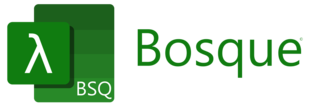Adware, often called advertising-supported software by its developers, is software that generates revenue for its developer by automatically generating online advertisements in the user interface of the software or on a screen presented to the user during the installation process. The software may generate two types of revenue: one is for the display of the advertisement and another on a "pay-per-click" basis, if the user clicks on the advertisement. Some advertisements also act as spyware, collecting and reporting data about the user, to be sold or used for targeted advertising or user profiling. The software may implement advertisements in a variety of ways, including a static box display, a banner display, a full screen, a video, a pop-up ad or in some other form. All forms of advertising carry health, ethical, privacy and security risks for users.

GNU Image Manipulation Program, commonly known by its acronym GIMP, is a free and open-source raster graphics editor used for image manipulation (retouching) and image editing, free-form drawing, transcoding between different image file formats, and more specialized tasks. It is extensible by means of plugins, and scriptable. It is not designed to be used for drawing, though some artists and creators have used it in this way.
In computing, source code, or simply code, is text that conforms to a human-readable programming language and specifies the behavior of a computer. A programmer writes code to produce a program that runs on a computer.

Scheme is a dialect of the Lisp family of programming languages. Scheme was created during the 1970s at the MIT Computer Science and Artificial Intelligence Laboratory and released by its developers, Guy L. Steele and Gerald Jay Sussman, via a series of memos now known as the Lambda Papers. It was the first dialect of Lisp to choose lexical scope and the first to require implementations to perform tail-call optimization, giving stronger support for functional programming and associated techniques such as recursive algorithms. It was also one of the first programming languages to support first-class continuations. It had a significant influence on the effort that led to the development of Common Lisp.
SourceForge is a web service that offers software consumers a centralized online location to control and manage open-source software projects and research business software. It provides source code repository hosting, bug tracking, mirroring of downloads for load balancing, a wiki for documentation, developer and user mailing lists, user-support forums, user-written reviews and ratings, a news bulletin, micro-blog for publishing project updates, and other features.

Ghostscript is a suite of software based on an interpreter for Adobe Systems' PostScript and Portable Document Format (PDF) page description languages. Its main purposes are the rasterization or rendering of such page description language files, for the display or printing of document pages, and the conversion between PostScript and PDF files.
Bytecode is a form of instruction set designed for efficient execution by a software interpreter. Unlike human-readable source code, bytecodes are compact numeric codes, constants, and references that encode the result of compiler parsing and performing semantic analysis of things like type, scope, and nesting depths of program objects.
Jython is an implementation of the Python programming language designed to run on the Java platform. It was known as JPython until 1999.
The Simplified Wrapper and Interface Generator (SWIG) is an open-source software tool used to connect computer programs or libraries written in C or C++ with scripting languages such as Lua, Perl, PHP, Python, R, Ruby, Tcl, and other language implementations like C#, Java, JavaScript, Go, D, OCaml, Octave, Scilab and Scheme. Output can also be in the form of XML.
Gutenprint is a collection of free-software printer drivers for use with UNIX spooling systems, such as CUPS, LPR, and LPRng. These drivers provide printing services for Unix-like systems, RISC OS and Haiku.
Scheme In One Defun, or humorously Scheme In One Day (SIOD) is a programming language, a dialect of the language Lisp, a small-size implementation of the dialect Scheme, written in C and designed to be embedded inside C programs. It is notable for being perhaps the smallest practical implementation of a Lisp-like language. It was written by George J. Carrette originally. It is free and open-source software released under a GNU Lesser General Public License (LGPL).

GIMPshop was a modification of the free and open source graphics program GNU Image Manipulation Program (GIMP), with the intent to imitate the look and feel of Adobe Photoshop.
This is an alphabetical list of articles pertaining specifically to software engineering.
Lightweight programming languages are designed to have small memory footprint, are easy to implement, and/or have minimalist syntax and features.
InstallCore was an installation and content distribution platform created by ironSource, including a software development kit (SDK) for Windows and Mac OS X. The program allowed those using it for distribution to include monetization by advertisements or charging for installation, and made its installations invisible to the user and its anti-virus software.
A potentially unwanted program (PUP) or potentially unwanted application (PUA) is software that a user may perceive as unwanted or unnecessary. It is used as a subjective tagging criterion by security and parental control products. Such software may use an implementation that can compromise privacy or weaken the computer's security. Companies often bundle a wanted program download with a wrapper application and may offer to install an unwanted application, and in some cases without providing a clear opt-out method. Antivirus companies define the software bundled as potentially unwanted programs which can include software that displays intrusive advertising (adware), or tracks the user's Internet usage to sell information to advertisers (spyware), injects its own advertising into web pages that a user looks at, or uses premium SMS services to rack up charges for the user. A growing number of open-source software projects have expressed dismay at third-party websites wrapping their downloads with unwanted bundles, without the project's knowledge or consent. Nearly every third-party free download site bundles their downloads with potentially unwanted software. The practice is widely considered unethical because it violates the security interests of users without their informed consent. Some unwanted software bundles install a root certificate on a user's device, which allows hackers to intercept private data such as banking details, without a browser giving security warnings. The United States Department of Homeland Security has advised removing an insecure root certificate, because they make computers vulnerable to serious cyberattacks. Software developers and security experts recommend that people always download the latest version from the official project website, or a trusted package manager or app store.
In computer programming, self-hosting is the use of a program as part of the toolchain or operating system that produces new versions of that same program—for example, a compiler that can compile its own source code. Self-hosting software is commonplace on personal computers and larger systems. Other programs that are typically self-hosting include kernels, assemblers, command-line interpreters and revision control software.

Bosque is a free and open-source programming language designed & developed by Microsoft that was inspired by the syntax and types of TypeScript and the semantics of ML and Node/JavaScript. Design goals for the language include better software quality and improved developer productivity.




